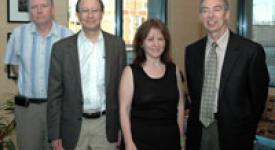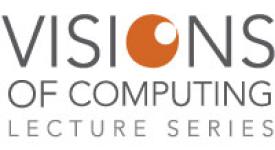News
The University of Texas at Austin will work with an availability services provider to form a Cloud Computing Research Center on their campus in order to research issues with the cloud and develop solutions to those problems.
Read More
The University of Texas and a Pennsylvania technology company have agreed to be partners on a cloud computing research center on UT's campus.
Read More
Cloud computing, where all of our photos, emails, and data stored in a distributed “cloud,” is the future. To improve emerging cloud-based technologies, a new center for cloud computing research was recently created in the Department of Computer Science at The University of Texas at Austin in a partnership with SunGard Availability Services.
Read More
SunGard and UT plan to identify research problems in the cloud computing field, pursue targeted research initiatives to solve those problems and commercialize the resulting research, officials said.
Read More
Natural sciences students Sid Upadhyay and Gaurav Sanghani, in partnership with business student Michael Koetting, are behind the creation of Hoot.Me, a Facebook application that allows students to collaborate on schoolwork in a variety of ways, even in subjects such as calculus with complex mathematical equations. Read More
http://youtu.be/jV1KgzBq8X8
The university’s Longhorn Network visits the Texas Advanced Computing Center‘s Visualization Laboratory at The University of Texas at Austin.
In the Vislab, simulations are displayed on Stallion, the world’s highest resolution tiled display.
Read More


BOULDER, Colo., Oct 24, 2011 (BUSINESS WIRE) -- A new program designed to radically improve the number of women in technology and computing is creating accelerated results for its participants, according to an announcement today from the National Center for Women & Information Technology (NCWIT).
Read More

Pagination
- First page
- Previous page
- …
- 72
- 73
- 74
- 75
- 76
- 77
- 78
- …
- Next page
- Last page



